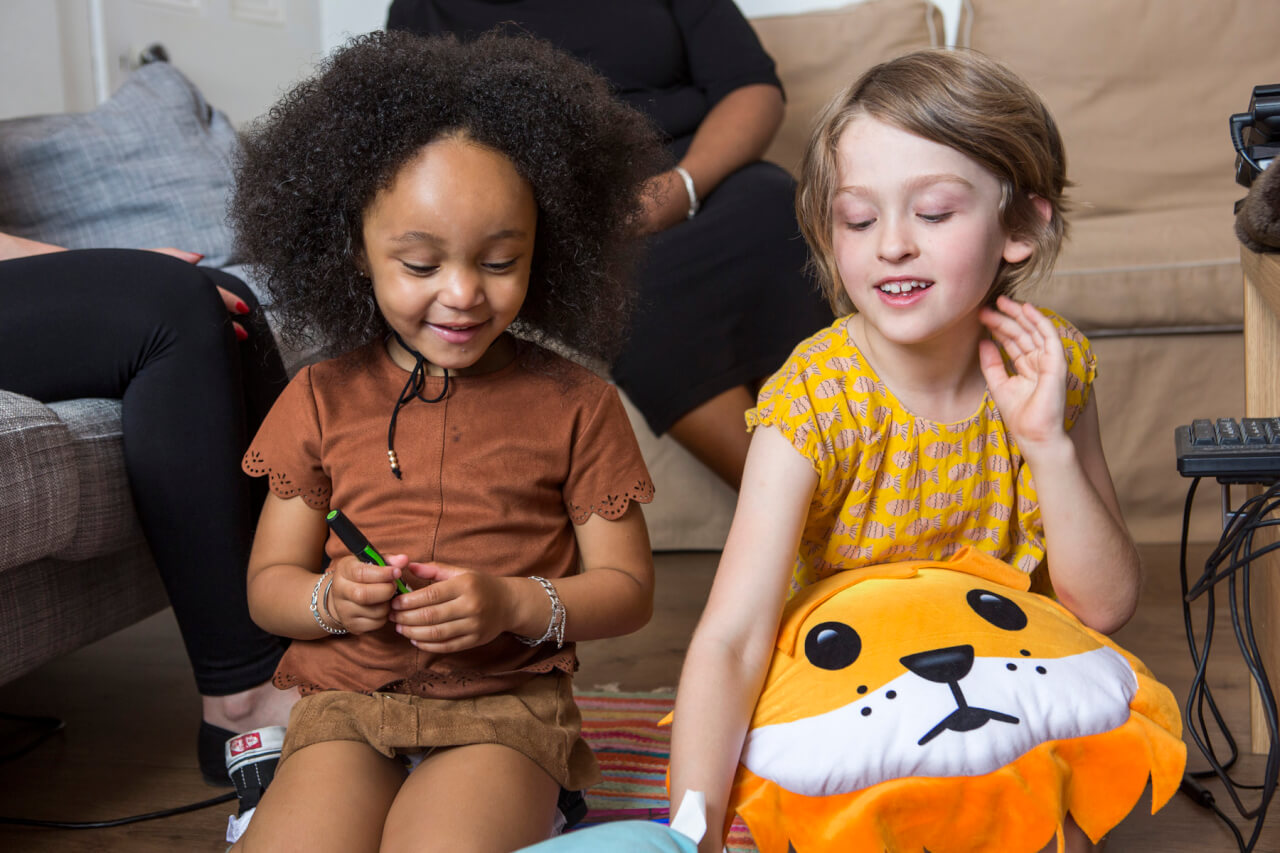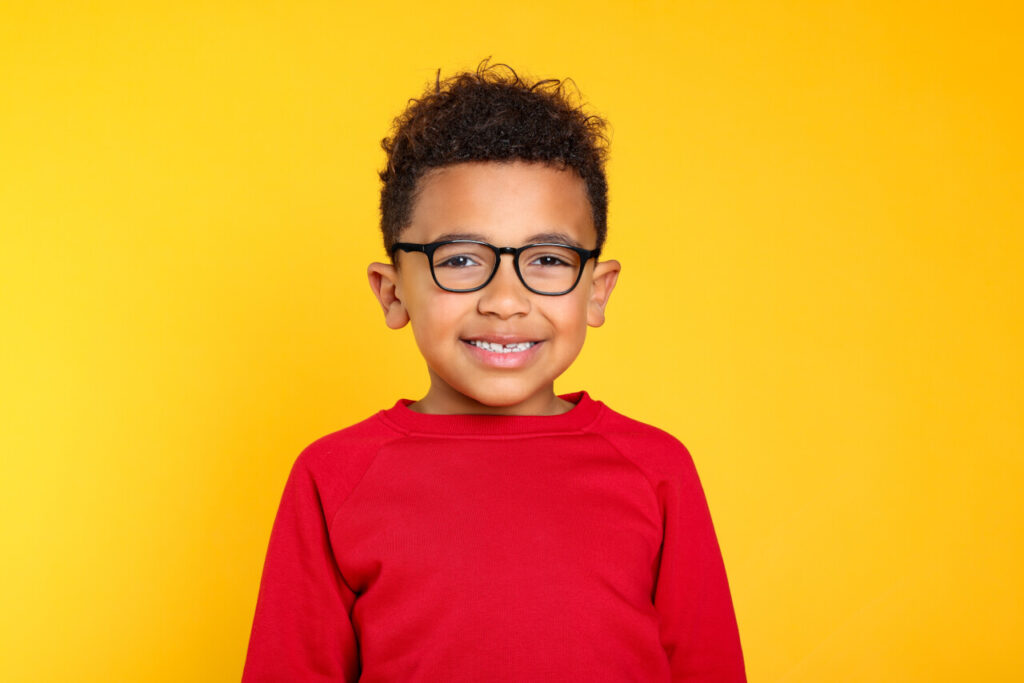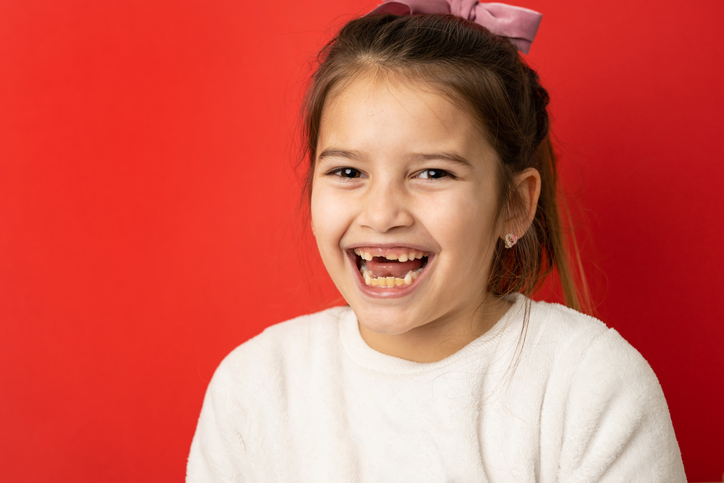
Children
Hello! On these pages you can find out about who we are and what we do. This could help you if you are going to be visiting us soon. There is also information about what you can do if you are finding things hard and where you can get help.
Meet Cam!
Join Cam and his friends as they visit us and find out what it’s like here!
Who we are
We are called the Tavistock and Portman, and we are a special health centre. You might hear people call us CAMHS or child and adolescent mental health.
We are part of the NHS. This is the same organisation that provide all kinds of free health care around the country, such as in hospitals and at your local doctors. All of your appointments with us are free.

How do we help?
We work with people that are having a hard time with their mental health. This means that they might be feeling sad or anxious or are not sure why they feel a certain way about something.
Children and their families, or the people that are looking after them, come to us to talk to people who can help them to feel better. They do this by listening carefully to how they are feeling and helping them find different ways that might help them cope and to help them feel better. We will help you ask questions when you feel unsure. If you find it hard to talk, you can write or draw pictures to help explain how you feel. We will do our best to make you feel happy and comfortable.
We will meet you, and members of your family, and those that care for you and talk about what is going well and what is not going so well and hear what everyone has to say.
I need to talk to someone
Find out who and how to talk to if you need help or advice
Why are you visiting us
There are lots of reasons why you may be coming to visit us.
Maybe you want to talk to someone about something that you are worried about or something which upsets you, or that makes you anxious, angry or confused.
Maybe someone else is worried about you like your mum, your dad or your carer, your teacher or your doctor.
It could be that something difficult has happened in your life like someone you love dying, your parents not living together anymore or you or someone you love being very ill.
Things may be hard at school or at home, and you may be having difficulties with your friends, family or when you are with other people.
It is important to know that everybody finds things difficult sometimes and it is good to talk about how you are feeling.
Whatever the problem is, talking to someone who understands can really help, and The Tavistock and Portman is full of friendly people whose job it is to be that person for you.
You may be a little scared or worried about visiting, but that’s quite normal. Remember, you’re not in trouble for visiting us; someone is worried about you, and we’re here to help you feel better.
Not sure what you are feeling or why?
Find out about different feelings you maybe experiencing and what you can do to try and feel better

What will happen when I visit?
There are lots of different types of people that work here. When you first come in you will have what we call an assessment. This is one or two appointments where we try to understand what is happening in your life, why you might be finding things difficult and how we can help.
After that we will speak to you and your parents, or the people caring for you, to agree what should happen next and if having more appointments with us would be helpful. If you all agree that it would be, we will give you a care plan and then you will have more appointments, we call this treatment. Your care plan will tell you who will see you, for how long and how they will try and help.
When you talk to us, we will keep the information you give us private and not share it with others. Sometimes we do have to tell others if we need to do so to keep you safe. If we do this, we will tell you that is what we are going to do and help you if you are worried about that.
Who will I see?
There are lots of people that work here. They have all learnt about different ways of helping you. Everyone who works here wants you to feel better, and by having lots of different people, we can make sure we find the right one for you. They are good at different things and help in different ways.
Psychologists
Psychologists are people who try to talk to you about your worries or what might be making you sad or angry. Psychologists try and think with you about what could help to make you feel better. You might see a psychologist if you are having difficulties at school, with friends or family, if you are not enjoying activities anymore or if you don’t feel like yourself. Psychologists may talk with you about ways to relax, to feel calm, and to manage tricky situations.
Psychologists can also help young people who find learning difficult. We will help understand why learning is tricky and then we will help make things easier in the classroom, by talking with your teachers and parents.
Social workers
Social workers try and understand what happens when things go wrong in families. It’s their job to stop you getting hurt and to help keep you safe. They will also see what help and support you and your family might need to make sure you are safe.
Psychiatrists
Psychiatrists are a type of doctor. They understand how your body and brain works and how different things affect them.
Psychiatrists sometimes give you medicine if they’re sure that’s what you need. If they do, they will talk to you and your parents or the people that care for you before they do.
Family therapists
Family therapists work with whole families or bits of families. They often work in teams, so they can see different sides of a problem.
Child psychotherapists
Child psychotherapists play and talk with children to help with feelings, like being very sad, worried, cross, upset, stuck or in a muddle. They especially help children who can’t talk or show feelings in ordinary ways. They also talk with parents, carers and schools so they can think about what’s happening and help things get better.
Nurses
Nurses look after you and try to find out what they can do to help. They can support you with your thoughts, feelings and behaviour. They can also help you in your friendships and to take part in activities that you enjoy and that help you to feel happier. They often come and see you at home or at school. They might sometimes join you in things you like to do such as art, sport, games or music. Or you might simply spend time together and talk to get to know each other. They might see members of your family too so everyone can work together as a team to look after you.
Receptionists and administrators
You will also meet receptionists and administrators when you come to the building. They will call you or your parent/carer to book your appointment and if you come to the building will tell you where to wait and let the person you are seeing know you have arrived. They might give you some forms to fill in while you wait for your appointment. These are to help us understand you better.
We have lots of different buildings that we see people in. Sometimes we will see you at school or at home. We also have our own buildings that have offices and therapy rooms in where you might be asked to come for your appointment. We also sometimes see people online or speak on the phone. When we arrange an appointment for you, we will talk to you about where it would be best to see you and make sure you know where to come.
Our services
Autism assessment service
Specialist assessment and treatment for children and young people with autistic spectrum conditions and developmental learning disabilities.
Camden CAMHS wellbeing team
We see children, young people and families where there is mild to moderate concerns about anxiety, low mood, and challenging behaviour.
Camden mental health support teams (MHST) in schools
An early intervention, school-based mental health service that works collaboratively with Camden primary and secondary schools.
Camden mosaic
Camden MOSAIC is part of the Integrated Children’s service in Camden.
Eating difficulties and avoidant restrictive food intake disorders (ARFID)
For children and young people with early onset eating disorders and ARFID
Family mental health
Supporting the emotional health and wellbeing of children, young people and their families.
First step plus
We provide psychological health screening and assessment for all looked-after children and young people in Haringey.
Forensic CAMHS (FCAMHS)
A free specialist community service designed to provide consultation to professional networks regarding young people that cause them great concern, specifically in relation to risk and the extreme and criminal behaviour.
Fostering, adoption and kinship care
We provide help to looked-after children and young people with emotional and behavioural problems.
Gloucester House
Gloucester House is a leading special school with a uniquely integrated specialist clinical team.
Growing with you: CAMHS children looked after and unaccompanied asylum seekers
We work with children and young people up to 18 years, who cannot live with their parents/families and are cared for in Camden and placed in foster care or residential homes
North and South Camden community CAMHS
We specialise in providing help and treatment for children and young people (0-18 years) with emotional health and wellbeing needs.
Psychological therapies for autism and learning disabilities
We provide psychological therapies for autistic children, young adults and their families and for those with developmental learning disabilities.
Whole family service
We help people between the ages of 14 and 25 who struggle with any emotional or relational aspect of being an adolescent or young adult.
Whole family service (perinatal)
We are a highly specialist service offering psychological therapy to families during pregnancy and with babies, toddlers and children up to the age of 5 years.
